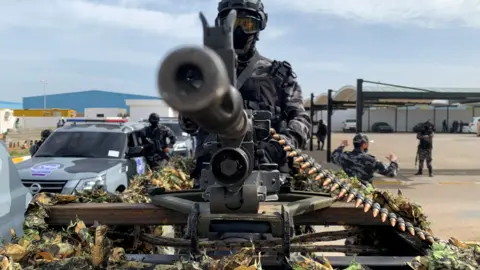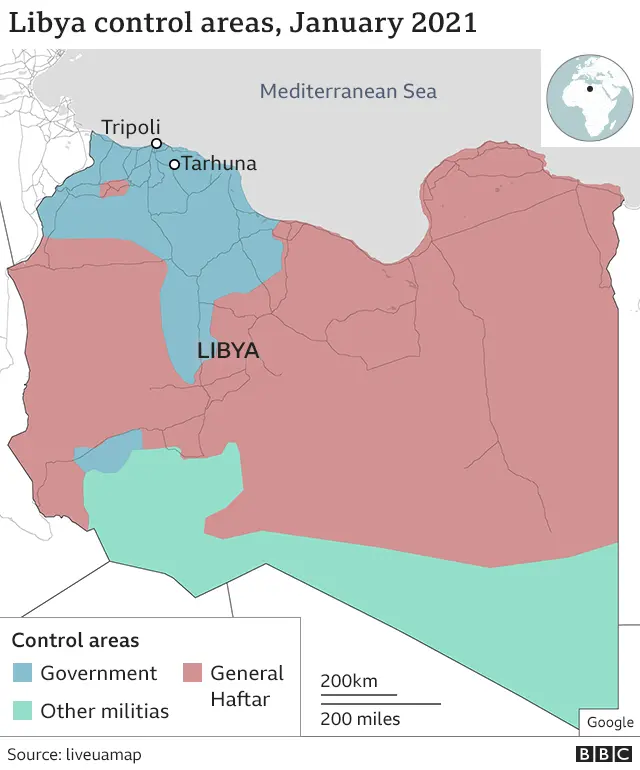Libya crisis: Vote to unite splintered nation
 Reuters
ReutersA Libyan interim unity government has been chosen to replace the war-torn country's rival administrations and oversee elections in December.
Delegates at a UN-led forum voted for a three-member presidential council and a prime minister at the end of five days of talks in Geneva.
It is a key step in a peace process that builds on last year's ceasefire.
Libya has been in chaos since long-time ruler Muammar Gaddafi was deposed and killed in 2011 by Nato-backed forces.
The turmoil in the North African nation, which has one of the continent's biggest reserves of oil and gas, has had repercussions for the whole region with Gaddafi's looted arsenal fuelling a variety of militants and groups.
It has also allowed the country to become a key trafficking point for migrants seeking to reach Europe across the Mediterranean.
Mohamed Younes Menfi, a former ambassador to Greece, will become the head of the presidency council.
Abdul Hamid Mohammed Dbeibah, a businessman from Misrata, will be the transitional prime minister.
None of the politicians chosen will be allowed to take part in elections on 24 December 2021.
All the candidates standing agreed before the vote to appoint women to 30% of all senior government roles.
Since a disputed election in 2014 there have been two centres of political power with parallel institutions in Libya - one in the east, backed by Gen Khalifa Haftar, and the other in the west, known as the Government of National Accord in the capital, Tripoli.


Both sides have had international backers - and there are many other factions in the country and even more armed militias.
UN Libya envoy Stephanie Williams said the new prime minister had 21 days to form a cabinet to be endorsed by the various groups of politicians.
Once agreed, "all parallel authorities should be considered null and void", she told the Libyan Political Dialogue Forum after the vote.

Analysis: Libyans hold their breath
By Rana Jawad, BBC North Africa correspondent
Despite a sense of déjà-vu that many Libyans will be experiencing following the vote in Geneva, this new administration does give the country a new opportunity to lay the foundations for a more democratic and peaceful transition of power in the near future.
How that plays out will depend on how military and armed groups on the ground, as well as outside proxies, play their hand.
Tensions and powerplay remain a prominent feature of Libya's political and military landscape.
Both Libyans and the international community will be holding their breath to see what comes next, rather than sighing with relief.

